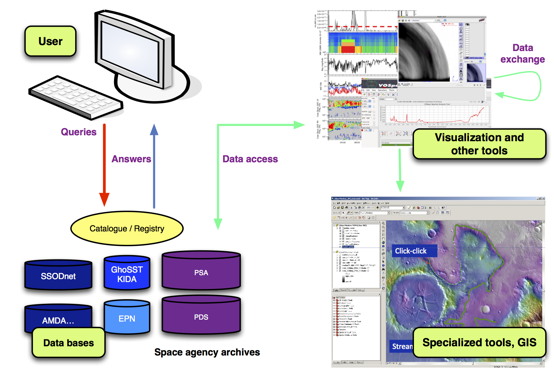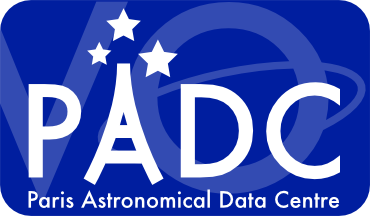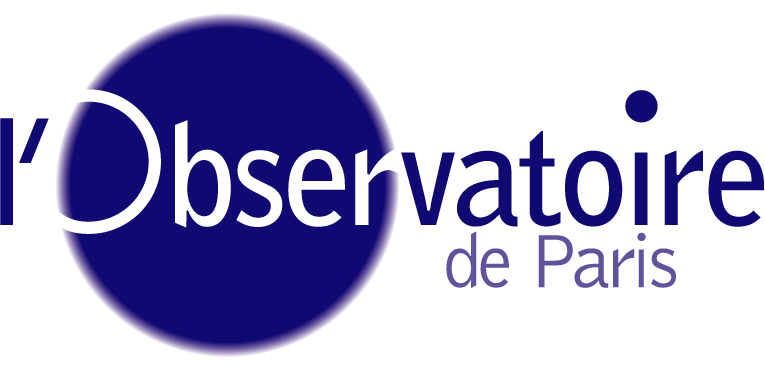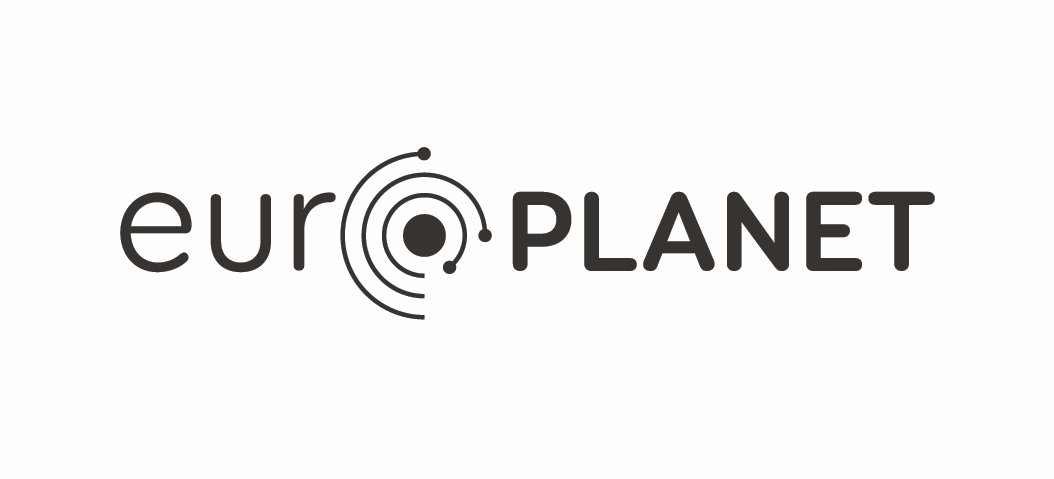VESPA / Europlanet 2020
This web page relates to the Europlanet-2020-RI programme, ended in Aug 2019. A follow-on of VESPA activity takes place in the new Europlanet-2024 programme starting Feb 2020.
The Virtual Observatory
The Virtual Observatory (VO) is intended to make it easy to locate, retrieve, and analyse data from archives and catalogs worldwide, and it assumes that astronomical data is distributed rather than centralised. Thus, the Virtual Observatory is concerned with data discovery, data access, and data integration, the hallmarks of cyberinfrastructure projects.
The goal of VESPA (Virtual European Solar and Planetary Access) is to build a Virtual Observatory for Solar System Sciences.
The VO term covers two different meanings. It can be either “a virtual observatory”: a web-based portal providing access to remotely distributed data resources using online forms with scientific parameters; or “the virtual observatory”: a series of standards and interoperable tools that can share data transparently. In the first case, the user connects to a VO and search for data, while in the latter, the user is using tools to display data and the VO is the invisible machinery that allows him to work efficiently.
The VESPA project includes both aspects:
- It will provide the first multi-thematic Solar System and Planetary Science VO portal.
- It will also improve the connexions between existing VO tools taking into account the specificities of Solar System Science.

The Virtual Observatory in Planetary Science
This vision will tremendously increase the science return of the shared datasets. In the proposed infrastructure the shared datasets will be reachable either using the VESPA web-portal, or through existing visualisation tools in use in the science community. The scientists will be able to search for data using a simple interface and a series of limited scientific parameters. They will not have to worry about data location or data formatting. The system will provide equal access to all shared dataset. Hence, even small teams contributing to the VESPA effort will have the same visibility as large space agency databases in the system. The amateur community also has a place in this system as valuable data providers. All planetary and solar system science fields will be available through the same interface. It will thus allow a very efficient cross-fertilization between neighbouring fields. Several examples of use can be provided here:
- searching in a methan lake region of Titan, the user will be able to retrieve the atmospheric conditions depending on season or altitudinal density and composition profiles;
- looking for auroral images at Jupiter, the user will have also access to observations in the low frequency radio range, as well as thermospheric models, upstream solar wind or magnetospheric conditions;
- looking for spectral observations of comets, the user will also be able to get laboratory observations for various composition of ices.
The VESPA effort will also improve the overall VO efficiency by upgrading existing VO standards to adapt them to Solar and Planetary sciences. The main role of VESPA will be the addition of Planetary Science specific capabilities in existing data visualisation VO tools (TOPCAT, Aladin, CASSIS, AMDA, 3Dview…). VESPA will thus provide common data mining capacities, advanced visualisation, cross-comparison potential, and data analysis functions to all connected data services.
The VESPA project is connected to other data-access related efforts such as the astronomical VO (IVOA, International Virtual Observatory Alliance), the International Planetary Data Alliance (IPDA, which is a coordinated project to share planetary science archive from space agencies), or SPASE (Space Physics Archive Search and Extract). The VESPA core team members have been regularly interacting with these groups in the past 5 years. Hence all new developments will be done in coordination with existing standards, ensuring this way the project sustainability. The team also participated in many VO-related FP7 programmes linked with solar system sciences such as Europlanet-RI, ESPACE, HELIO, VAMDC, CASSIS, IMPEx in particular.
The goal of the VESPA project is to provide such an infrastructure, through a JRA and a VA, building on the prototype forged during Europlanet-RI (2009-2012). The JRA-VESPA will provide efficient visualisation and analysis tools to the Planetary Science VO, while the VA-VESPA will enlarge its content with new data services and by building a community of users and data providers, actually answering a growing demand in this field. The JRA-VESPA will also prepare new VO-compliant data services with particular interest and impact in several thematic fields of Solar System studies. The scientific community will participate to this project through workshops organised twice a year (at EPSC and EGU, the two major Planetary Science conferences in Europe), where VESPA will be showcased, tutorials will be proposed during hands-on sessions, feedback and needs from the user will be collected.
Evolutions
A first prototype was devised during the EU-funded programme Europlanet-RI (2009-2012), in the IDIS activity. VESPA has evolved and matured since the end of Europlanet-RI. Its development is now a part of the Europlanet 2020 programme. An increase by a factor of 5 of the number of connected data services is expected during the programme, as well as the training of 15-20 teams in Europe.
Credits
If your research benefits from the use of VESPA, we would appreciate if you could include the following acknowledgement and reference in your publication:
"This research has made use of the VESPA portal and services (https://vespa.obspm.fr) funded by European Union's under grant agreement No 871149"
VESPA: A community-driven Virtual Observatory in Planetary Science. Erard S et al., 2018. doi: 10.1016/j.pss.2017.05.013
Please also acknowledge the original data providers.
Except where explicitly mentioned, data are distributed under Etalab Open License 2.0 (compliant with CC-BY 2.0 license).
The Europlanet 2024 Research Infrastructure project has received funding from the European Union's Horizon 2020 research and innovation programme under grant agreement No 871149.
The Europlanet 2020 Research Infrastructure project has received funding from the European Union's Horizon 2020 research and innovation programme under grant agreement No 654208.
This work used the EGI Infrastructure with the dedicated support of IN2P3-IRES and CESNET-MCC.
VESPA has first been designed in the frame of Europlanet-RI JRA4 work package (IDIS activity).
Additional funding was provided in France by the Action Spécifique Observatoire Virtuel and Programme National de Planétologie / INSU.
 |

|  |
 |

